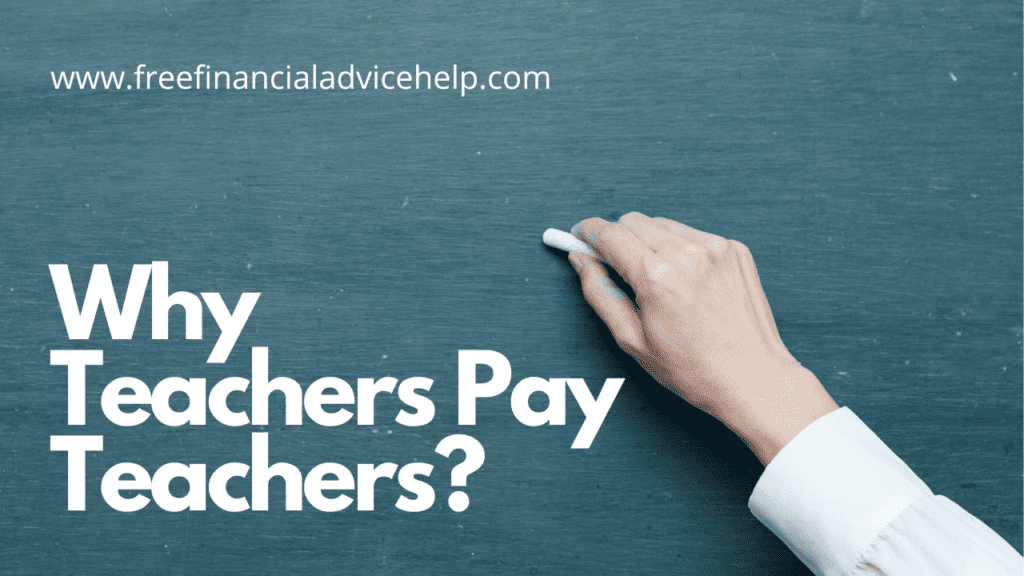Source of High School Teachers Pay Teachers Apply Now
Teachers pay teachers to make money off copyrighted material, and they make it the responsibility of the teachers who created the material to hunt that down and make sure it gets out.
And that makes me angry,” said Reulbach. “It’s not about me. It’s about a company that makes money off of copyrighted material.”
In a statement, Holland said the company had “no desire” to list infringing material on teachers’ pay teachers.
In Teachers Pay Teachers, Some Sellers Profit From Stolen Work
Julie Reulbach does not sell resources on Teachers Pay Teachers, an online marketplace that allows educators to monetize their lesson plans and teaching materials. Despite this, she often sees her work for sale there.
“Every time I look, I find something,” said Reulbach, a high school math teacher at a private school in Concord, NC, who has published an instructional blog since 2010. About every six months, she scans Teachers Pay Teachers for work from her blog.
Their site is under a Non Commercial Creative Commons license, so anyone can use, edit, or share their materials—but they can’t sell them.
It happens anyway. And Reulbach’s experience is not unique.
Who is the teacher? 14 Lessons Students Have Taught Their Teachers (Opinion)
Nearly a dozen educators who have used or are familiar with the site told Education Week that Teachers Pay Teachers has a widespread copyright infringement issue.
Teachers said vendors took passages verbatim from their lessons and copied entire pages without permission. While the company provides a reporting mechanism for violations, it leaves the monitoring to the rightsholders themselves.
The stolen work controversy has also fueled a larger ideological divide in the teaching community: the split between those who think it’s okay for teachers to make money off their hard work and those who believe educators are sharing materials with them for free should share with their colleagues.
In a statement, Teachers Pay Teachers CEO Joe Holland said the company takes intellectual property protection seriously.
“Teachers Pay Teachers strictly prohibits its vendors from listing material that infringes the intellectual property rights of others, and we have no desire to have such material on Teachers Pay Teachers,” he said.
But educators and authors say the company should do more to combat what they see as a systemic failure to protect teachers and others who create materials.
They Shouldn’t Sell It
When Reulbach sees vendors trying to make money from the lessons she creates, she approaches them and asks them to take their materials. “Usually people contact me and say, ‘I’m really sorry,'” and remove the resource from their business, she said.
But earlier this year, she got into an argument with a teacher-salesman that became public. When Reulbach saw one of her graphic organizers for sale at a Teachers Pay Teachers store, she filed a notice with the company’s copyright team and commented on the listing. She also reached out to seller Theresa Ellington on Twitter, asking her to remove the product.
The two went back and forth on the social media platform, with Ellington saying she revised the lesson from a Pinterest post and Reulbach claiming the resource was a direct copy of hers.
Screenshots Reulbach took of the worksheet from the store are nearly identical to the version in their original blog post, including the same formatting and equations. A picture published with Ellington’s product even shows a photo of the organizer filled in with Reulbach’s handwriting.
Eventually, Ellington, a math teacher, and education consultant, removed the graphic organizer from her shop. But in an interview with Education Week, Ellington said she doesn’t believe the resource ever infringed on Reulbach’s copyright.
She said she made changes to the Pinterest post and sold it so other teachers could have access to the updated version. (She also said that no one ever bought a copy from here.)
Reulbach often finds images of her work on Pinterest, she told Education Week, where teachers might assume the images don’t belong to anyone. “But if they didn’t create it, then obviously they shouldn’t sell it and try to make money off it,” she said.
Other teachers say they unexpectedly found their work being sold on Teachers Pay Teachers as well.
When Chicago teacher Tess Raser found out that her sixth-graders would be watching the movie “Black Panther” as a class, she saw an opportunity for a powerful lesson. Raser created an accompanying curriculum for the film, covering a wide range of history, social studies, and sociology: African kingdoms, the transatlantic slave trade, Afrofeminism, and Afrofuturism.
She put the resource online and it went viral. Raser’s work has been featured on the technology and science fiction website Gizmodo and on the website of Blavity, a media company targeting black millennials. Teaching Tolerance, social justice and anti-prejudice program that provides free resources to educators, also highlighted it as recommended reading.
While access to the google doc containing the syllabus was free, Raser asked those who could pay to do so through Venmo or the Cash App, two online payment services. She also put the resource up for sale in her own Teachers Pay Teachers shop.
Months later, a friend emailed her — another Teachers Pay Teachers vendor had listed a resource with content almost identical to her own, she said. A preview page from the Seller’s Lesson shows the same goals for understanding colonialism and a similar image matching activity.
Raser emailed Teachers Pay Teachers to report the seller and posted the incident on Twitter. And although the seller removed the resource from her store, Raser didn’t feel the issue was resolved.
“I thought, okay, you still have to compensate me because you were paid for the work I created,” she said. “I don’t care that it was deleted — you shouldn’t have posted it in the first place.”
Public Pressure
Some whose content has been removed say they see public pressure as their best option.
Reulbach, the North Carolina teacher, said the reporting process via Teachers Pay Teachers can be slow, and contacting the seller directly sometimes yields a quicker result.
But Ellington, who confronted Reulbach on Twitter, said she felt Reulbach was wrong to go public with the incident. “I felt like it was more cyberbullying than two people, two teachers, two professionals talking about, ‘Hey, that’s a problem,'” she said.
When Teachers Pay Teachers Reulbach responded, all it said was that the company would note Ellington’s breach in its records.
Reulbach’s social media appeal had another effect: it led to an avalanche of tweets from other bloggers who had had similar experiences.
Lisa Bejarano, a former high school math teacher who now works for the online graphing calculator company Desmos, was one of these bloggers. Bejarano has seen resources from her blog being sold by other users, but she said it wasn’t worth the energy for her to fight stolen work.
She has contacted vendors when friends or co-workers have pointed out similarities to her work, but she does not look for violations.
“Typically, as a teacher, you’re just so busy grading, planning, and teaching that the last priority is the police,” she said.
Investigating possible violations can also have financial costs for teachers. Browsers on Teachers Pay Teachers can only see a small selection of preview pages from resources they did not purchase, so it may be necessary to purchase a product to confirm suspicions that it was copied from another work, Bejarano said.
“My perspective is always that if this teacher is so desperate to make a few extra bucks that he has to go that far, then he has bigger problems that I’m not going to solve,” she said.
The company says it will shut down the accounts of sellers who receive multiple reports of copyright infringement but wouldn’t say how many individual infringements it would need to receive against someone before taking that step.
Several teachers argued that TpT had no incentive to monitor the site as the company profits from every lesson sold. It charges a 45 percent commission on each lesson purchased from a regular seller and a 20 percent commission on each sale from a “premium” seller — a paid membership tier that costs about $60 a year.
“Teachers Pay Teachers makes money off of copyrighted material and they put it under the responsibility of the teachers who created the material to hunt that down and make sure it gets out. And that makes me angry,” said Reulbach. “It’s not about me. It’s about a company that makes money off of copyrighted material.”
In a statement, Holland said the company had “no desire” to list infringing material on TpT.
Ethics Of Selling vs. Sharing
When Teachers Pay Teachers first started in 2006, it sparked a controversy: Is it ethical for teachers to charge each other for tuition and resources, or should they share their creations for free?
TpT has been touted as a way for underpaid educators to make extra money – media coverage has often spotlighted teachers who have reaped six-figure profits.
But the customers on Teachers Pay Teachers are also teachers who face similar financial burdens as the vendors. Should they really have to pay for the materials they need for their work?
Raising copyright infringement claims on the platform can spark a powder keg in the teacher-seller community, Reulbach said. Criticism of the problem, she said, is often confused with criticism of all teachers who use the site.
“It’s a very, very uncomfortable subject for a lot of teachers because some teachers really need Teachers Pay Teachers to survive,” Reulbach said.
And teachers in underfunded schools rely on centralized storage of lessons and materials.
With the popularity of Teachers Pay Teachers, online sharing opportunities have also developed – platforms like BetterLesson and Share My Lesson allow teachers to freely post and download material.
There’s also a growing cult of teachers who create and use HyperDocs: editable, shareable lessons hosted on Google Docs. The website of this movement is entitled “Teachers Give Teachers”.
If material is good enough to share, there’s no point in restricting teacher and student access to it by charging a fee, said Kevin Roughton, a social studies teacher at a Southern California middle school, who said he has his to Work seen sold on TpT without his permission.
“If my work can help the teacher next door, I certainly won’t be a burden to my colleague next door. … I don’t know why all of a sudden if it’s [a teacher in] another county or another state, I want to deny students access to this material.”
Roughton publishes a blog where he shares the history lessons he has created. Last year he found a lesson in a TpT store with several lines of text taken verbatim from his materials.
He contacted the seller, who acknowledged the similarities and said he may have unknowingly inserted lines from other resources he’d seen online. The seller then made changes to the product.
“Ideas in the educational community are constantly being shared, borrowed, and stolen,” Roughton said. But there’s a difference, he said, between “stealing” an idea to use with your own students and stealing a work to sell for a profit. The former is good guidance, the latter bad practice at best – and illegal at worst.
For Reulbach, seeing her work behind a paywall feels like an obstacle to justice. “Teachers don’t make a lot of money, and it really saddens me that teachers are paying for something they could get for free,” she said.
Unfair Burden?
Educators say the company should do more — to simplify the reporting process, better educate sellers about copyright, and take quicker action against those who break the rules.
Roughton, the Southern California teacher, never filed a DMCA takedown notice with the site. He said he knew he created the material but wasn’t sure if he had to do anything to claim the copyright. (He did not.)
He feared that if his claim were not deemed valid, he might find himself in legal trouble. “As a teacher, I figured it just wasn’t worth it for a $5 lesson on a website,” he said.
When users file DMCA notices, they must report each listing separately. Sometimes, Serravallo says, a user creates individual resources that infringe their copyright and then bundle all of those resources into another, standalone product. In these cases, it must report both the bundle and each individual resource.


